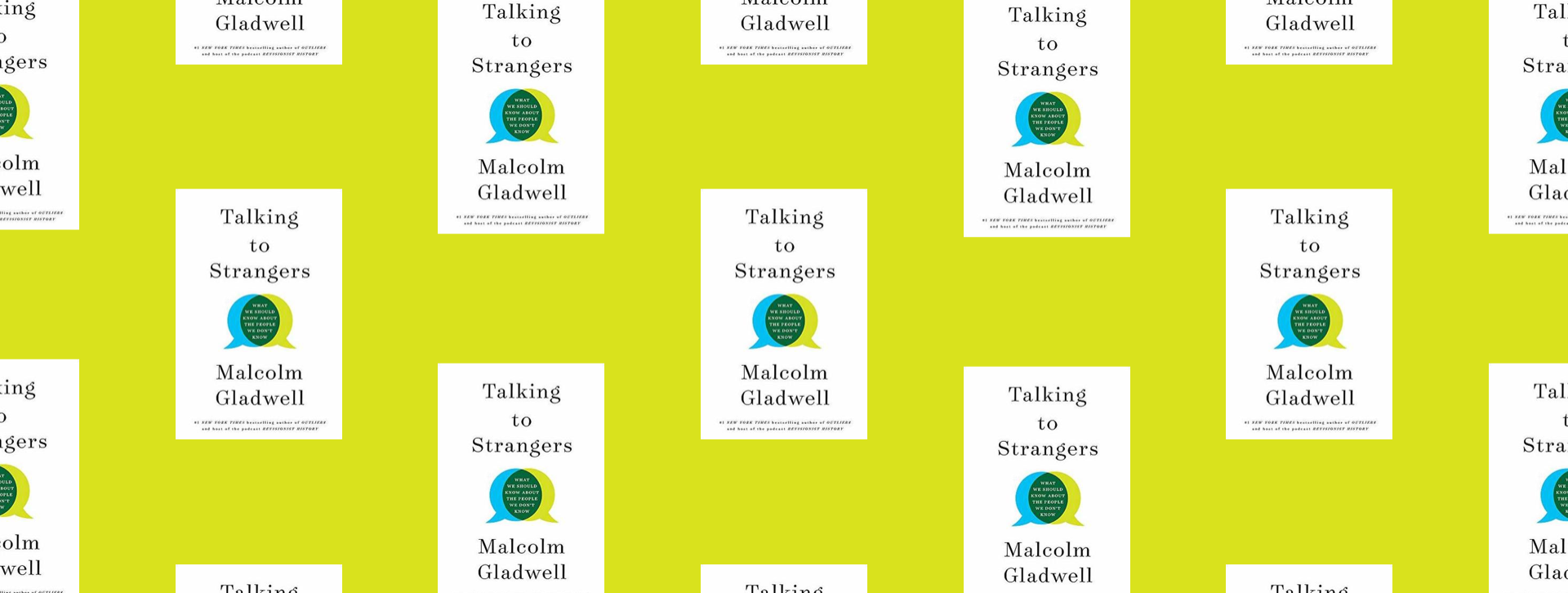Talking to Strangers: What We Should Know About the People We Don't Know
In July 2015, a young black woman named Sandra Bland was pulled over for a minor traffic violation in rural Texas. Minutes later she was arrested and jailed. Three days later, she committed suicide in her cell. What went wrong? Talking to Strangers is all about what happens when we encounter people we don't know, why it often goes awry, and what it says about us.
How do we make sense of the unfamiliar? Why are we so bad at judging someone, reading a face, or detecting a lie? Why do we so often fail to 'get' other people?
Through a series of puzzles, encounters and misunderstandings, from little-known stories to infamous legal cases, Gladwell takes us on a journey through the unexpected. You will read about the spy who spent years undetected at the highest levels of the Pentagon, the man who saw through the fraudster Bernie Madoff, the suicide of the poet Sylvia Plath and the false conviction of Amanda Knox. You will discover that strangers are never simple.
No one shows us who we are like Malcolm Gladwell. Here he sets out to understand why we act the way we do, and how we all might know a little more about those we don't.
Author: Malcolm Gladwell | Publisher: Little, Brown and Company
Goodreads | IndieBound (buy local!) | Amazon | Barnes & Noble
Rating: 4.5 / 5
Content trigger warning: Sexual assault, suicide
Talking to Strangers is, without a doubt, Malcolm Gladwell at his finest. And at his most culturally relevant. Gladwell’s skill at combining stories and examples with scientific study in order to keep you engaged and demonstrate complex psychological phenomena is unparalleled.
I highly recommend listening to this one as an audiobook. I own a physical copy of the book and still waited for the library’s audio version to become available, because it’s really unlike any other nonfiction listening experience. Instead of Gladwell reading the transcripts in each of his examples, he includes the actual audio (or, when not available, reenactments) of real police encounters, court testimony, etc. It was incredibly powerful.
The book is all about how easy it is for humans to misinterpret one another and miscommunicate, which has drastic results in interactions like police encounters, college parties, and courtrooms. Big, big warning for readers: He dives very deep into cases that could trigger significant trauma, like Sandra Bland, Jerry Sandusky, Larry Nassar, and Brock Turner. It was very, very emotional and difficult for me to listen to, and I don’t have a history of that sort of trauma. So if those might be difficult for you to read /listen about, tread carefully into this book (if at all).
Gladwell begins by talking about Sandra Bland, a Black woman who was unfairly pulled over by a police officer. The officer escalated the encounter quickly and inappropriately, and she was eventually brought to jail, where she committed suicide. This encounter becomes a case study on all the reasons why talking to strangers is much more difficult than we realize, and why we so often get it wrong. Chapter by chapter, Gladwell examines each facet of this phenomenon before bringing them all back together in the end to offer an explanation of what went so wrong with Sandra Bland.
One of the major points of the book is that humans have a natural default for truth, meaning that we assume people are being truthful with us. Rather than collecting each piece of information in an encounter to decide whether they are being honest or lying, we assume they are honest and don’t switch to thinking they’re lying until there is enough evidence to convince us to switch sides. And yes, this will result in us being duped sometimes. But if we didn’t have this natural tendency, then every encounter would look like the police officer who stopped Sandra Bland, and society couldn’t function at all.
This is just so fascinating, and Gladwell describes and explains it so thoroughly. What I always find so impressive about his books is how he gives me talking points for conversations with others — I find myself wanting to talk about it, share what I learned, exclaim about it all. And I think that’s the mark of a good book.
I did think he got a little dicey when he was talking about the Brock Turner case and the way alcohol inhibits our ability to talk to strangers — it was indeed grounded in science, and I respect that it is difficult to talk about the science of alcohol consumption without making people worry that you’re going to blame the victim. And he danced too close to that line a few times, in my opinion, but did eventually back away from it and make a clear point, in the end, to not blame the victim.
I’m going to be thinking about this one for a long time. I definitely recommend.


